During the final years of the British administration and the early years of independence, Alhaji (Sir) Ahmadu Bello served as the Sardauna of Sokoto and the head of Nigeria’s northern region. However, he was brutally killed at his home in 1966 during a coup d’état, one of several incidents that exemplified Nigeria’s political unpredictability.
History has it that Sir Ahmadu Bello was the first and only premier of Nigeria from 1954 until his assassination in 1966. He was regarded as a conservative man who oversaw Northern Nigeria’s transition to independence in 1960 and ruled the country for more than ten years.
Ahmadu Bello, during his lifetime, was considered a political leader whose main responsibility was defending the interests of the people of northern Nigeria. This was in contrast to other Nigerian political figures who envisioned a single, united nation following independence from the British. Thus, as a result of this, he has recently been perceived as the perpetrator of Nigeria’s disunity.
As a result of his interest in the unity of northern Nigeria, he was made the head of the Hausa-Fulani elite-dominated Northern Peoples Congress, which was the party in power at the time. Also, previously elected to the regional assembly, he later rose to the position of a government minister. He attempted to become the Sultan of Sokoto as a descendant of the Sokoto Caliphate dynasty before entering politics.
In this piece, Naijabiography narrates the birth, political career, and leadership measures of Sir Ahmadu Bello.
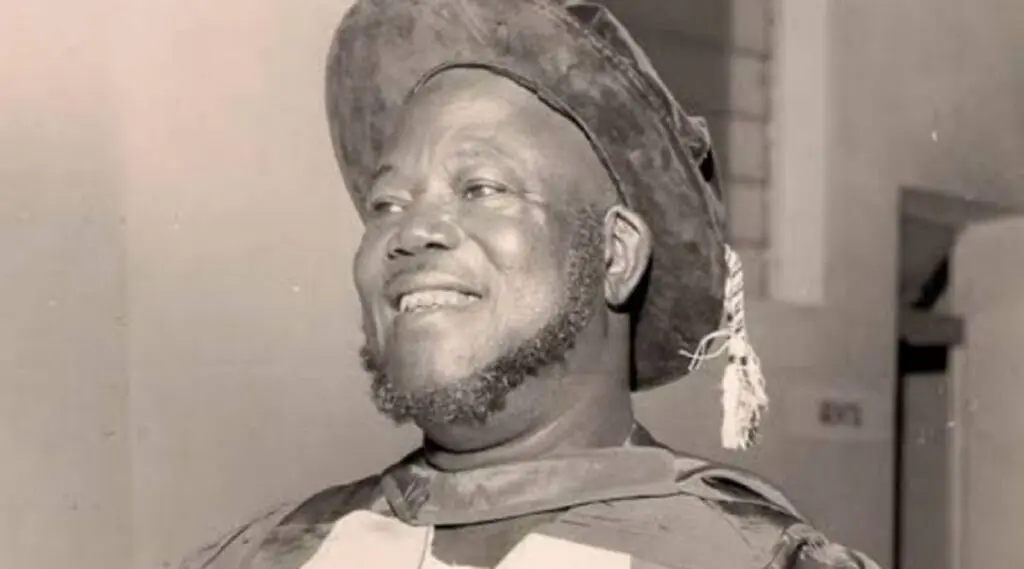
Early Life
Young Ahmadu Bello was born into the family of Mallam Ibrahim Bello on June 12, 1910, who lived in Rabah at the time. His father, Mallam Ibrahim Bello, was given the title of Sarkin Rabah (a local government area in Sokoto). He was known as one of the dedicated followers and descendants of Uthman Dan Fodio, the founder of the Sokoto Caliphate, as well as the great-grandson of Sultan Muhammad Bello and the grandson of Sultan Atiku na Raba.
History has it that Ahmadu Bello was a descendant of the Toronkawa (Torodbe)– Muslim clerics, known as the family that is part Arab and Fulani, which was managed by the brother of Usman, Abdullahi dan Fodio.
The Torankawa (Torodbe) did not consider the category Fulani to be significant before the Jihad in 1804; their literature indicates their uncertainty in describing Torodbe-Fulani connections. They retained their unique identity while absorbing much of the culture and language of the Fulbe. Originally, the Toronkawa clan mostly attracted members from the lower strata of Sūdānī society. There were clerics in Toronkawa who were of Fula, Wolof, Mande, Hausa, and Berber descent. However, they were Fulbe scholars who spoke the Fula language and married into Fulbe families.
Ahmadu Bello is said to have obtained his Islamic education at home, where he studied the Qur’an, Islamic law, and Muhammad’s customs. Later, he attended the Katsina Training College and the Sokoto Provincial School (now Barewa College). He went as Ahmadu Rabah when he was a student. Growing up, some also referred to him as Gamji.
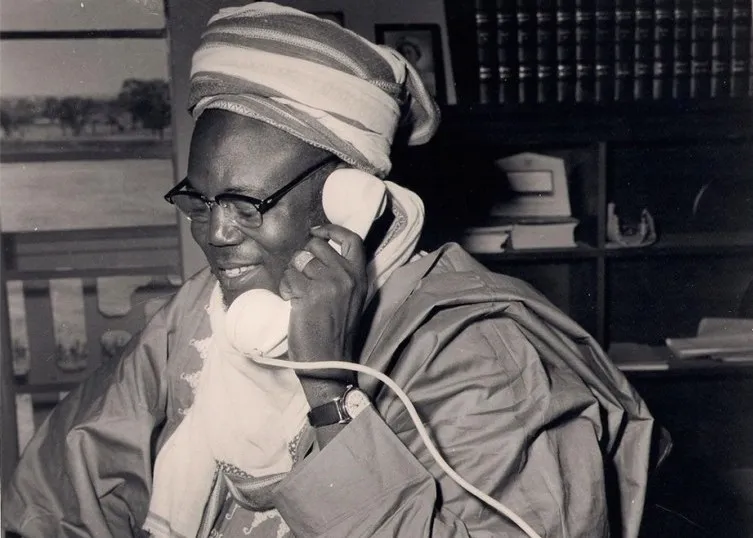
Ahmadu graduated from college in 1931 and, thereafter, started teaching English at Sokoto Middle School. Later, Bello succeeded his brother as District Head of Rabah in 1934 thanks to Sultan Hassan dan Mu’azu. He was made a member of the Sultan’s council and appointed as Divisional Head of Gusau (in modern-day Zamfara State) in 1938.
He, therefore, attempted to become the Sultan of Sokoto in 1938, when he was only 28 years old, but failed, losing to Sir Siddiq Abubakar III, who ruled for 50 years until his death in 1988. The new Sultan, Sir Ahmadu Bello, was appointed to the Sokoto Native Authority Council and given the chieftaincy title of Sardauna (Crown Prince) of Sokoto by the new Sultan right away.
By virtue of these positions, he was automatically the Sultan’s Chief Political Advisor. By 1944, he was back in the Sultan’s Palace working as the Chief Secretary of the State Native Administration. Later, he was given control of the Sokoto Province to manage 47 districts.
Political Career
Ahmadu Bello joined Jamiyya Mutanen Arewa in the 1940s, which later changed its name to the Northern People’s Congress (NPC) in 1951. He studied local government administration in England in 1948 thanks to a government scholarship, which increased his awareness of and familiarity with governance.
As World War II came to a close, Bello got involved in bigger political issues. In Sokoto, he helped establish the Youth Social Circle, a discussion club for educators and government employees from the North, in 1945. This group joined forces in 1948 with the newly formed Northern People’s Congress (NPC), which was intended to be a cultural group but ended up becoming the main political force in Northern Nigeria.
After his trip to Britain, Ahmadu was chosen to represent the province of Sokoto in the local House of Assembly. He was a prominent advocate for northern concerns in the assembly and adopted a consensus-building approach with the key Kano, Bornu, and Sokoto representatives of the northern emirates.
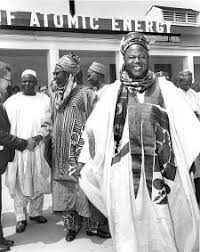
Sir Ahmadu Bello was elected to the Northern House of Assembly in the inaugural Northern Nigerian elections in 1952 and later joined the regional executive council as the minister of works. Bello served as Nigeria’s Northern Region’s Minister of Works, Local Government, and Community Development. In 1954, Bello was elected the first Premier of Northern Nigeria.
Bello led the NPC into an alliance with the Western Region’s Nigerian National Democratic Party (NNDP) in 1964. In the 1964 federal elections, the coalition’s party, the Nigerian National Alliance, secured a resounding victory.
Ahmadu Bello and Nigeria’s Independence
Bello led the NPC to victory in the 1959 elections for independence, winning the majority of the parliamentary seats. Together, Dr Nnamdi Azikiwe’s NCNC (National Council of Nigeria and the Cameroons) and Bello’s NPC created Nigeria’s first indigenous federal government, which eventually led to the country’s independence from Britain.
Before eventually accepting reforms, Bello initially supported the colonial Nigerian system of indirect control. His biographer, John Paden, referred to him as a progressive conservative during his time as premier since he was a change agent as well as a representative of the old elites.
History has it that Bello had a unique blend of religious, traditional, and modern ideals, and it was his duty to play each of these roles in the northern region of colonial and post-independence Nigeria. Sir Ahmadu Bello implemented the northern nation of the region’s public service due to the dearth of qualified graduates from the area.
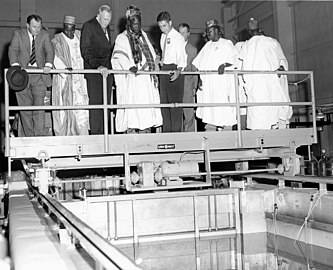
Indirect rule was used for administration in the North, and Western education was not given much weight in many regions. Political leaders in the area believed that there were fewer Northerners working in the public sector compared to their colleagues in the South when the public sector was regionalized.
Political factors caused regional officials to restrict the hiring of Southerners into the Northern regional service and find means to advance Northerners into junior and senior positions. Because northerners viewed expatriates as transients but worried about southern dominance of the regional public service, the leaders continued to use their services. Efforts were made to educate northerners, and in 1949, a scholarship board gave money to nearly all of those who met the requirements to enrol in institutions.
The Institute of Administration in Zaria began offering administration studies in 1957. Political leaders in the zone made it a priority to ensure Northern representation in high positions of the Federal service, in addition to attempting to fill posts in the civil service with Northerners.
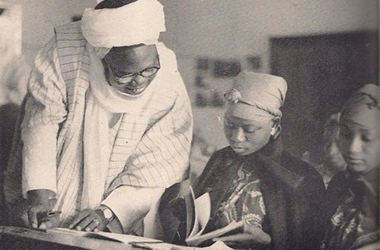
Ahmadu Bello’s Administration
Bello established a number of organizations, such as the Northern Nigeria Development Corporation (NNDC), the Bank of the North, and Northern Nigeria Investments Ltd. (NNIL). However, while NNIL was a collaboration between the Commonwealth Development Corporation and NNDC established to aid in the industrial development of Northern Nigeria, NNDC was a holding company with funding from the region’s marketing board.
Bello started initiatives to modernize Northern Nigeria’s traditional Koranic education. To this end, he established a commission and gave the schools legal legitimacy. Thus, the commission suggested setting up several classes for students and introducing secular themes in the classrooms.
However, his educational goals included creating a school in each northern Nigerian province to ensure that every child in the north had access to education, as well as a chance to learn the Quran.
Ahmadu Ballo’s Northern Priority
The prior years of Bello’s life were evident in his later years, even after his death- although, in recent times, he has been accused of being the reason for disunity in Nigeria as a result of Islamization and the liberation of the north, perpetrated by him.
Thus, making sure the northern region was politically and economically on the same level as the western and eastern regions was one of his top priorities. This influenced the decision to hire more Northerners to replace Southerners and Europeans in the civil service of the Northern region—a move that angered opposition figures like Ibrahim Imam.
However, over the years, Ahmadu has been perceived as the saviour of the north for his remarkable innovation in the region, ensuring that the people there experience development in all sectors. This, according to research, is perceived as giving the north the power to drive the decisions of Nigeria.
Ahmadu Bello’s Death
Prior to his assassination, Bello got warnings from Brigadier Samuel Ademulegun and Western Region Premier Samuel Akintola, which was before the 1966 coup d’état in Nigeria.
On January 15, 1966, an Igbo Nigerian Army, Major Chukwuma Kaduna Nzeogwu soldier murdered Ahmadu Bello, overthrowing Nigeria’s post-independence government in a coup. At the time, Ahmadu Bello was still Northern Nigeria’s premier.
History has it that the coup d’état was Nigeria’s first-ever coup, which signaled the military’s emergence as a political force in the nation. He was therefore assassinated during the coup. Along with many other political elites from the north and the west, his longtime friend, Alhaji Sir Abubakar Tafawa Balewa, was slain during the coup.
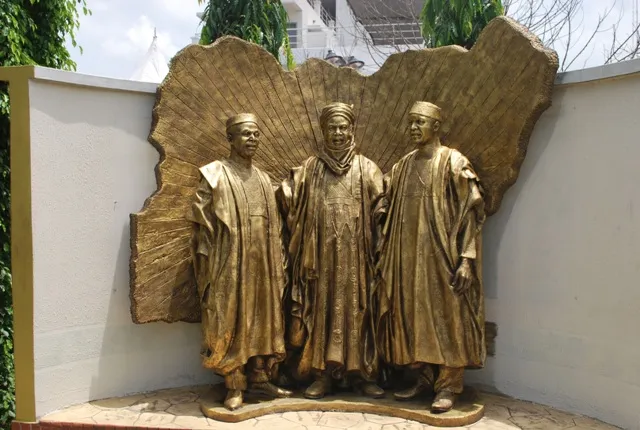
Legacy
Bello had three wives when he passed away. His senior wife, Hafsatu, passed away with him. His second wife, Amina, produced three daughters for him. Inno was his oldest child, followed by Aisha and Lubabatu, and they are all still alive.
In honour of his dedication to the development of the north in ensuring equality, quality education, peace and unity in the region, some structures were built in his memory. For instance, Ahmadu Bello University, located in Zaria, was built in his memory. Furthermore, the Nigerian government also designed the 200 naira note with his picture on it.





